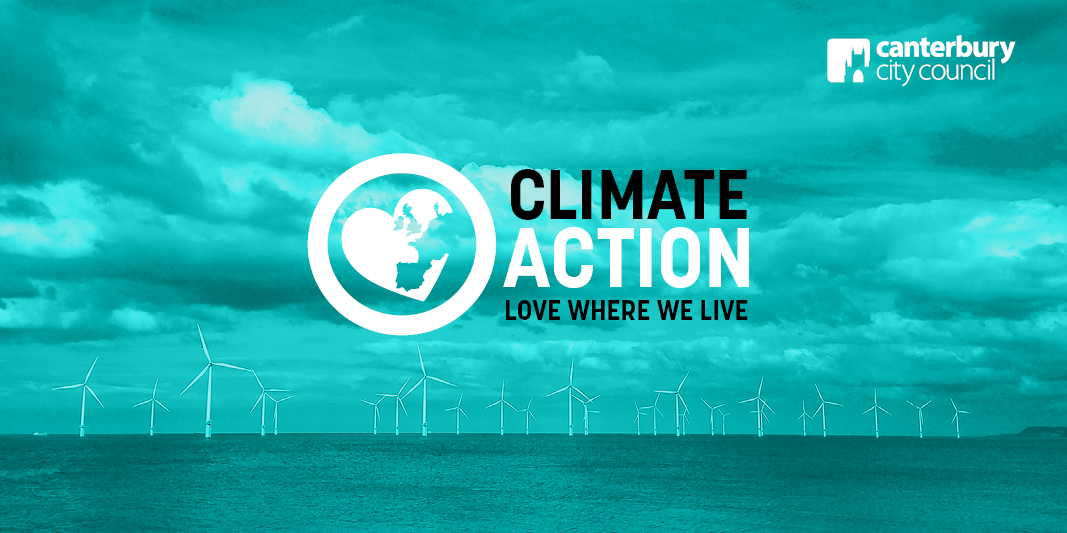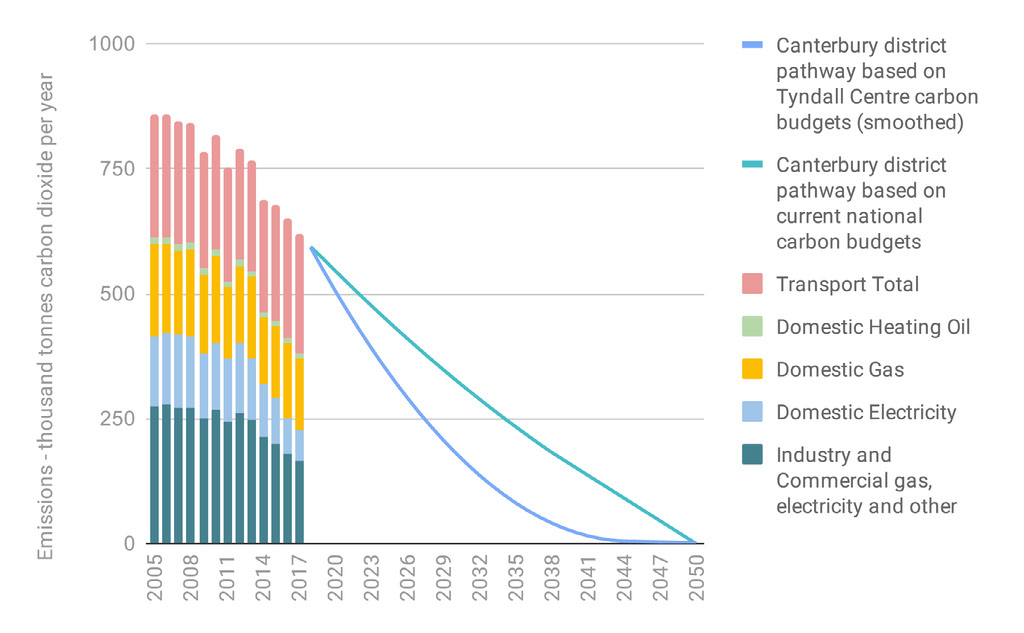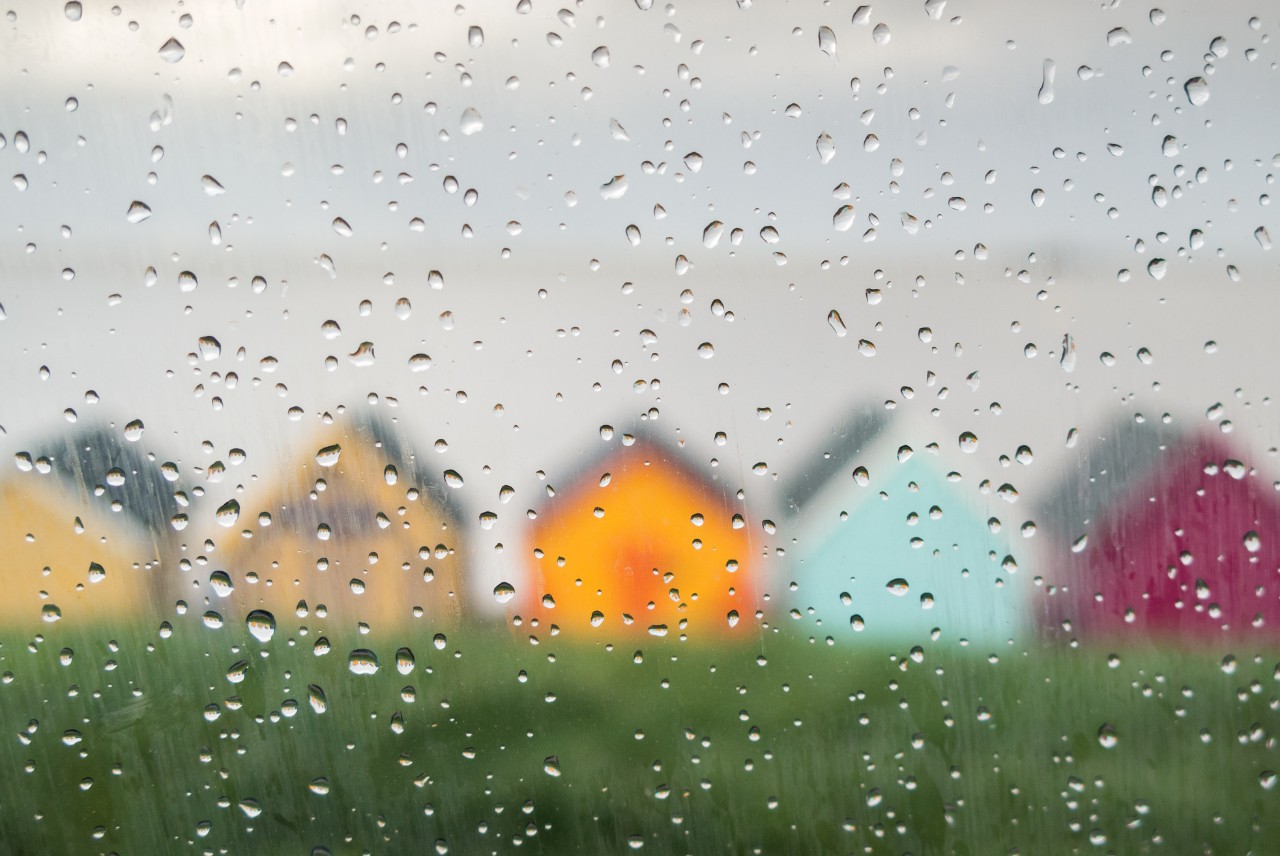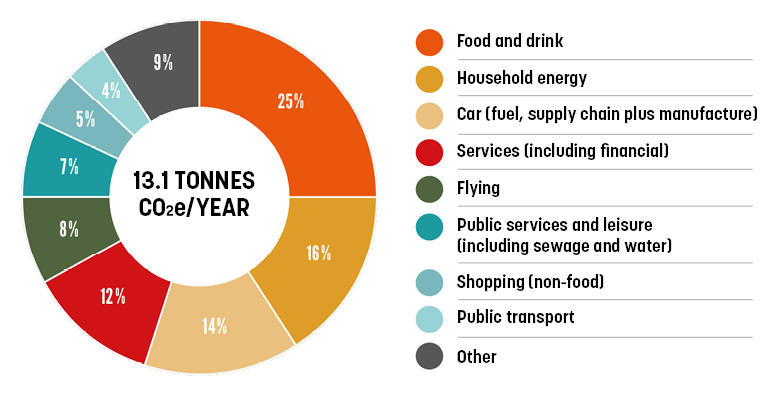Climate Action

Action on climate change is a global priority. But it is essential we address this challenge at a local level. Towns and cities need to be climate friendly and able to cope with the negative effects of changing weather patterns. Canterbury City Council has declared a climate emergency and is committed to take urgent action to reduce its carbon emissions to net zero by 2030.
What is climate change and why is it an emergency?
Climate change is the term used to describe a shift in the planet’s weather patterns and average temperatures. The causes and effects of climate change are complicated.
A simple explanation is that burning fossil fuels like petrol, diesel, oil, gas and coal is increasing carbon dioxide (CO2) and other greenhouse gases in the atmosphere. This increase warms the planet and leads to an imbalance in the systems that control the world’s climate.
The consequences for life on the planet of increased global temperatures are likely to be severe and urgent action needs to be taken by all of us to reduce our carbon emissions.
What do we need to do about climate change in our district?
According to UK government data, we emit around 620,000,000 kg of CO2 per year in Canterbury, Whitstable, Herne Bay and our villages. This is about the same amount of CO2 trees and plants in our district absorb in 24 years!
The emissions come from heating and powering our homes and businesses as well as from the transport we use. This does not include any of the emissions from the things we buy from outside our region.
To respond to climate change as a district, we all have to reduce our reliance on fossil fuels and adapt to changing weather patterns. That is not always easy. From considering the effects of climate change in our Local Plan to making our homes and businesses more energy efficient, we can all take steps to help the environment.
There are some useful online resources to help get you started like this guide on home improvements from the Energy Saving Trust.
Net zero emissions: what we are doing as a council

Current C02 emissions in the Canterbury district and our potential path to net zero
Research has shown to stop climate change, our overall CO2 emissions need to fall to zero. A number of countries, including the UK, have committed to moving away from fossil fuels and have set net zero emissions targets.
Net zero means, overall, no more CO2 and other greenhouse gases are generated than are absorbed by the world’s natural systems. Direct measurements of carbon dioxide levels in the global atmosphere are recorded regularly by NASA.
Canterbury City Council is working on a clear plan to respond to the climate emergency. Our ambition is to reduce emissions from the facilities we operate and the services we deliver as quickly as possible towards our goal of net-zero by 2030. We have put in place a cross-party Climate Change Councillor Working Group reporting to the Policy and Resources Committee.
Our Climate Change Officer is working to establish the carbon emissions from council operations to inform our action plan. We are also establishing a partnership board to work with the big institutions and businesses in the district so we can tackle emissions. We will publish more about our plans soon.
Adapting to changing weather

The long-term change in global weather patterns will continue to affect the district even as we tackle the causes of climate change. There is a significant delay between the increase in carbon dioxide and changes in the weather.The potential impact includes changes to rainfall patterns, extreme temperatures and more storms, floods and droughts.
With the Environment Agency, Canterbury City Council has been working hard to improve coastal, river and rainfall flood protection. There is other long-term work that will be necessary to build resilience including changing the way we farm and adapting our food systems, water supply, homes, businesses and services to cope better with changing weather.
Our work to help residents and businesses

Visit Canterbury © Alex Hare
Canterbury City Council is working to reduce emissions at a district level and prepare for the impact of climate change through the planning system and the way we deliver our services.
The climate emergency requires us to do more to help residents and businesses understand the issues and take action. We are working on our plans for community and business engagement.
There are regional networks for businesses including Low Carbon Kent to help them to reduce their emissions through advice and funding. Kent County Council has also published guidance for businesses to improve their environmental performance.
What can we do as communities?
As we have seen during the national response to the Covid-19 epidemic in 2020, the community can be incredibly powerful when it comes together to tackle a challenging situation. Projects can include tree planting, shared orchards and looking after parks and gardens. Local groups can also be the catalyst for more ambitious work like the creation of community transport and renewable energy generation schemes.
Here are some useful links to help you connect with community action across the district:
Average Carbon Footprint in the UK

A carbon footprint measures the total greenhouse gas (GHG) emissions caused directly and indirectly by a person. It’s measured in tonnes of carbon dioxide equivalent (tCO2e), a standard unit which expresses the impact of different GHQs. Source: Small World Consulting
Every person and organisation has a carbon footprint. This is the amount of carbon dioxide released into the atmosphere because of their activities. Nearly everything we do and buy releases carbon into the atmosphere because of the fossil fuels used to make, package, store and transport them.
We all need to play a part in reducing our impact on our environment. You can find out what your individual carbon footprint is using the WWF environmental footprint calculator:
Calculate your carbon footprint
What can we do as individuals?
While climate change is complex and can feel overwhelming, there are some choices you can make in your day-to-day life to lessen your personal impact on the environment. Here are some simple ideas:
-
Eat less meat and dairy products
-
Buy fewer new things
-
Repair and reuse all the things you have already bought including clothes and furniture
-
Use your heating much more carefully
-
Grow your own food in a garden or an allotment
-
Travel less in cars and avoid flying
-
Walk and cycle more
-
Change your bank to one that does not invest in fossil fuels
Many of these simple actions are also very good for your health and air quality.
There are other things that you can do that take a little more investment:
-
Making your home more energy-efficient
-
Trying to use public transport more
-
Swapping your petrol or diesel car for an electric one
Please note: These are just some ideas for you to consider. Canterbury City Council have added these suggestions for illustrative purposes only and are not recommending or endorsing one particular action, product or service.
For information on climate change across the district, please contact Nicholas Thurston, Climate Change Officer, at nicholas.thurston@canterbury.gov.uk

© Canterbury City Council 2020
Published: 21 July 2020